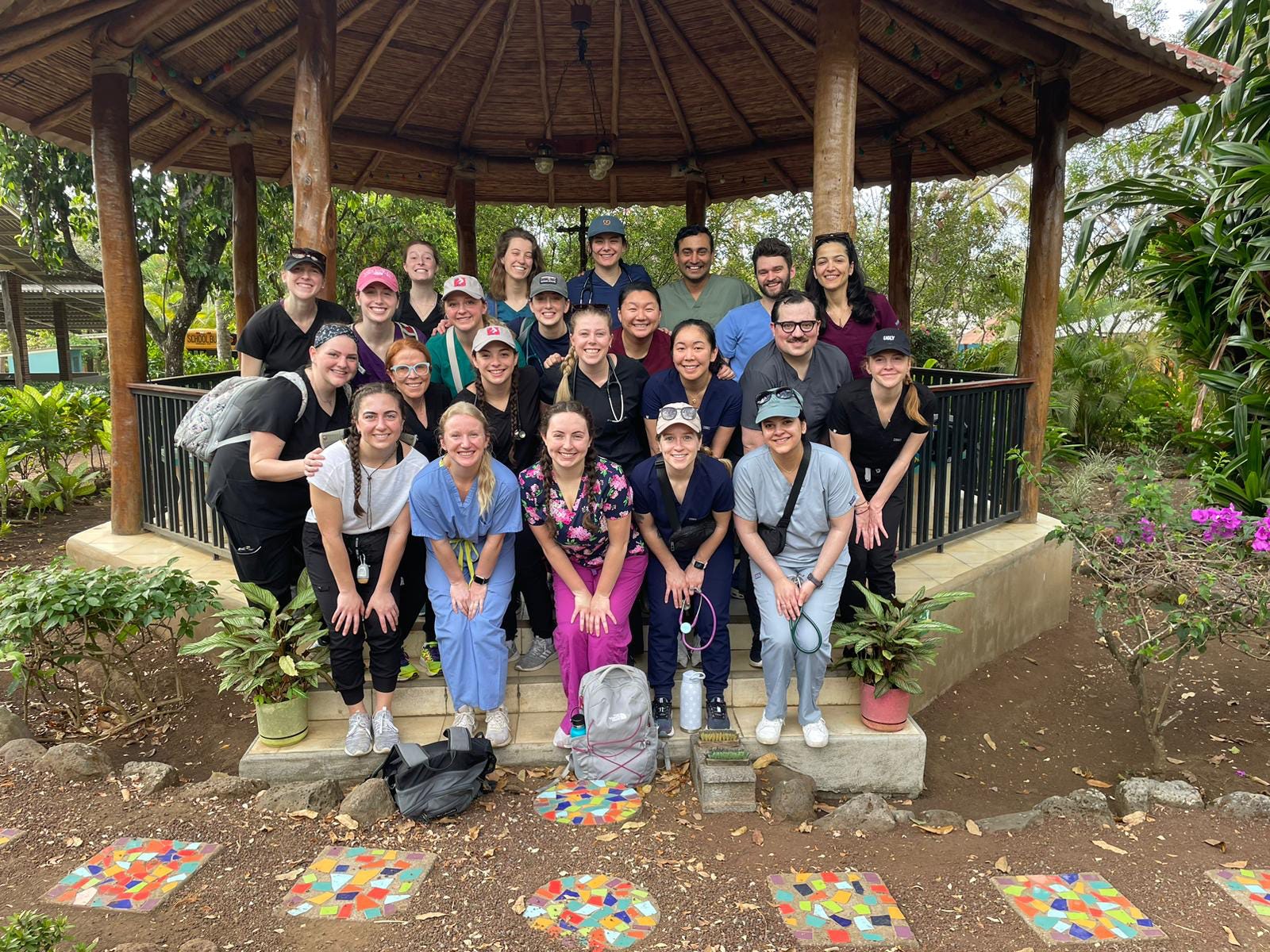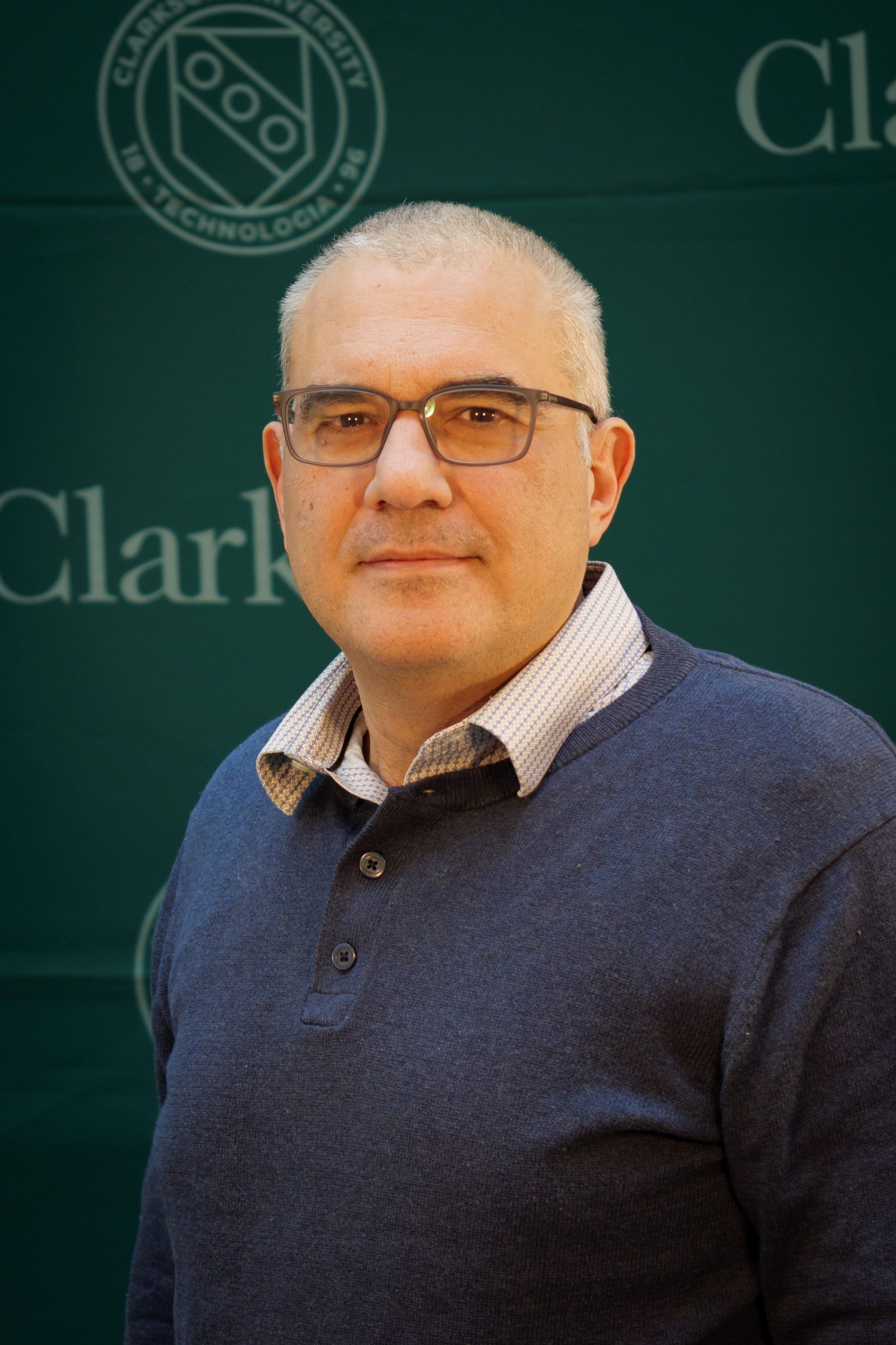The Clarkson University David D. Reh School of Business and the Institute for a Sustainable Environment partnered with EcoTrust in Uganda to offset 234 tons of carbon dioxide this summer. This was equal to the airfare and ground transportation emissions for 48 people traveling to either Uganda and Kenya, Croatia, or the Devil’s Thumb Ranch in Colorado.

Bottom row left to right: Dallas McHarris, Ciaran Ward, Mon Hadzovik, Abe Molla, Callie Lindsay, Carlee Hallenbeck, Ahmet Aytekin
Clarkson has set a goal to offset all transportation emissions by next year and for the whole university to become carbon neutral by 2025. The annual CO2 footprint is around 17,000 tons for the university. Clarkson is aggressively investing in energy efficiency improvements and exploring options for purchasing renewable electricity. These efforts are all driving down the CO2 footprint. However, not all emissions, such as airfare, will be avoidable. Therefore in 2025 Clarkson will begin to offset all remaining annual emissions. CU is committed to paying a fair market price for its pollution.
Offsetting carbon is a market solution to climate change where you pay a different organization, such as EcoTrust, to remove an equivalent amount of global warming gases from the atmosphere as what you’ve emitted. This can be through various activities ranging from tree plantings to destroying chemical refrigerants. After the emissions and the offsetting activity, there is a net-zero impact on the climate. For the Clarkson School of Business trips, it costs approximately 1% of the budget to create a carbon-neutral experience.
EcoTrust sequesters carbon through agroforestry and community forestry programs in southwestern Uganda. Clarkson students on the trip were able to visit some of these sites as well as their head office in Kampala. EcoTrust’s programs improve the food security and financial security of the communities they work in. The forestry practices also have significant ecological benefits for the soil, groundwater, and habitat of the region. EcoTrust’s efforts are concentrated in areas that will have a larger regional impact; the sites that Clarkson students visited act as a buffer against deforestation and degradation of the Queen Elizabeth National Park.
Global travel is essential to the Clarkson @125 vision. Clarkson’s climate action plan has no intention of reducing airfare emissions which are currently around 3,000 tons of CO2 per year. Partnering with groups such as EcoTrust to meet our climate goals provides an added value to the Clarkson student experience.
Click here for a shareable link: https://www.clarkson.edu/news/three-clarkson-summer-travel-courses-were-carbon-neutral


